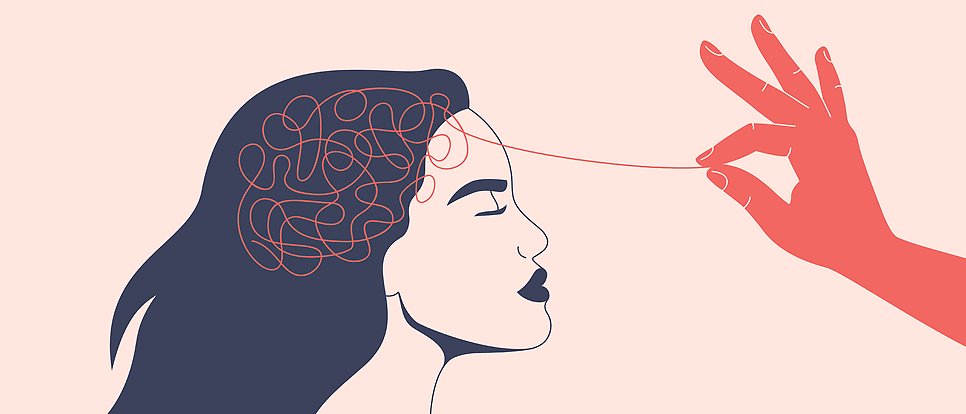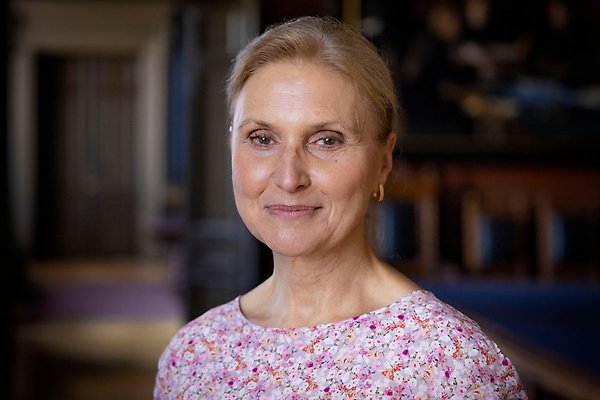New method to be tested on patients with severe eating disorders

Can reduced control help patients with severe, persistent eating disorders? Researchers at the University will study this question when Uppsala University Hospital receives new patients as part of the National Highly Specialised Care initiative.
Excessive self-control has been found to be common in anorexia. A new therapy that helps individuals with eating disorders to surrender control has yielded positive results. Now, researchers will study whether the treatment can help the most severely ill patients.
This spring, new clinics at Uppsala University Hospital will open to patients suffering from difficult-to-treat eating disorders. Uppsala will become one of three cities in Sweden offering National Highly Specialised Care to children, adolescents and adults. Research will also be conducted in conjunction with the treatment.
“We believe that quite a special group will come to the clinic – people who have likely been ill for a very long time and have not responded to treatment. We therefore want to offer them a treatment they may not have received before,” explains Mia Ramklint, research group leader at Uppsala University Hospital Child and Adolescent Psychiatric Services, Professor of Child and Adolescent Psychiatry at Uppsala University and one of the researchers associated with the region’s mission.
Treating with therapy that reduces over-control
Previous studies in her group have shown that individuals who restrict their food intake and have what is known as a restrictive eating disorder tend to have a more over-controlled personality style than those with bulimia. They also found that Radically Open Dialectical Behaviour Therapy (RO-DBT) produced good results. The therapy is designed to treat mental health issues characterised by pronounced over-control, perfectionism, and compulsiveness.
"Radical openness is about relinquishing control in more areas than just eating. It also relates to how someone interacts with other people, being open and discussing something private."
RO-DBT has previously been used on adult individuals with restrictive eating disorders, but they have also received ethical approval to use the method in the treatment of young people.
"RO-DBT is designed to treat emotional over-control, so we must first assess whether patients are suitable for the treatment. But if they are, we would like to try it.”
Looking to test magnetic stimulation on patients with anorexia
Another hope Ramklint has, but for which they have not yet sought ethical approval, is to provide adult patients with repetitive transcranial magnetic stimulation (rTMS) in collaboration with Professor Robert Bodén. The treatment involves sending short magnetic pulses to specific parts of the brain.
"When stimulating the cerebral cortex, activity between different areas of the brain changes, increasing neural plasticity," explains Ramklint.
rTMS is now used in the treatment of severe depression. Whether it can also work for patients with severe anorexia has not been tested in Sweden before, but studies in other countries have shown promising results.
"When they become chronically ill, it's as if something has become stuck that you need to try to access. It's a very interesting idea, that you can stimulate neuronal plasticity while providing patients with RO-DBT training. I think there may be potential in that."

Mia Ramklint suggests that it is common for individuals with anorexia to struggle with emotional regulation. Food can then become a way to control emotions. Photo: Mikael Wallerstedt
High achievers overrepresented among patients
Attempting to treat patients using both therapy and magnetic stimulation aligns with the fact that anorexia is likely the result of biological, psychological and social factors.
"There is a familial prevalence, which means that even if a person doesn't inherit an eating disorder, they inherit some sort of vulnerability. They carry something with them. And it's those same qualities that make someone a high achiever. This group clearly has an overrepresentation of high achievers."
Once the disease has developed, certain biological processes become disease-reinforcing in themselves. Starvation can lead to biological changes, making it difficult to break the pattern.
"Why can some people diet, while others succumb to an eating disorder? Perhaps this biological vulnerability makes some succumb.”
Care has improved
Ramklint believes that many patients who do not recover from their eating disorder are highly critical of healthcare. Therefore, in highly specialised care, they will try to pinpoint the type of help patients wish to receive.
"We have obtained ethical approval to interview adults with severe, persistent eating disorders about what they want. Many have emphasised the lack of a patient perspective."
Even though not all patients can be helped, Ramklint believes there has been significant progress in eating disorder care.
"When I started working in the 1980s, there were no highly specialised units and healthcare was much worse. Patients became extremely ill and ended up in intensive care. Today, it is extremely rare. Deaths due to starvation are also very infrequent."
Mortality is still elevated among patients with anorexia, but it occurs later and is associated with physical illness, suicide, and substance abuse. Significant progress has also been made in care of young adults. Many young people recover and do not need to seek treatment for eating disorders as adults.
Ramklint believes it is important to keep these advancements in mind and never lose hope, even when it comes to the sickest patients.
"When I worked clinically in eating disorder care, I used to tell my patients, 'Maybe it didn't work this time, or last time, but next time it will.' Perhaps something changes biologically, or they get tired of their illness. You need to constantly think, 'What haven't we tried? Can we do something differently?' Creativity is needed, because all of a sudden it works."
Sandra Gunnarsson
Find out more
Facts: National Highly Specialised Care
The Swedish National Board of Health and Welfare has tasked Uppsala University Hospital and Region Uppsala with providing National Highly Specialised Care for eating disorders in children and adults. The aim is to concentrate expertise in the treatment of eating disorders at fewer hospitals to provide better conditions for the development of care and research. This work will be carried out in collaboration with researchers at Uppsala University.
Two different patient groups can be referred for highly specialised care:
- Patients with severe eating disorders with or without primary somatic or psychiatric comorbidity, where several treatment attempts have been made of adequate intensity, including at least one outpatient or inpatient care session. When several such treatments or treatment attempts have been made without sufficient success, the patient should be referred for national highly specialised care.
- Patients with acute medical instability primarily caused by an eating disorder, where transport is feasible and there is no option for adequate care in the local region.
